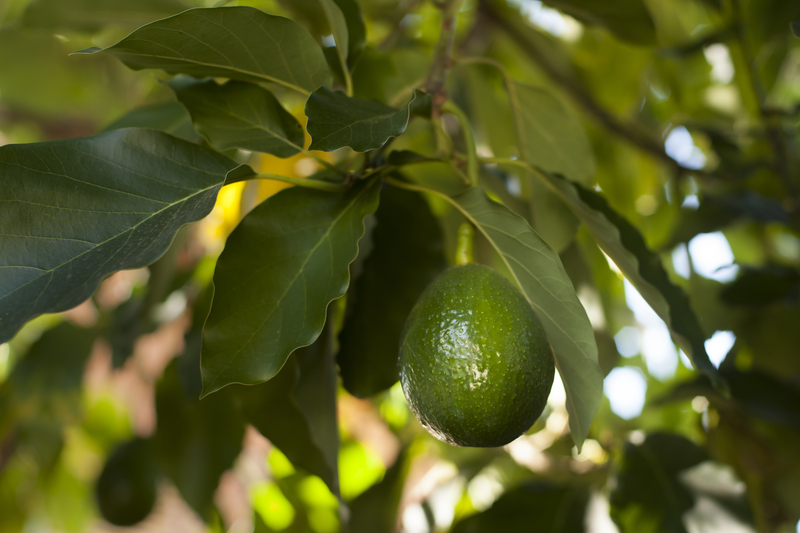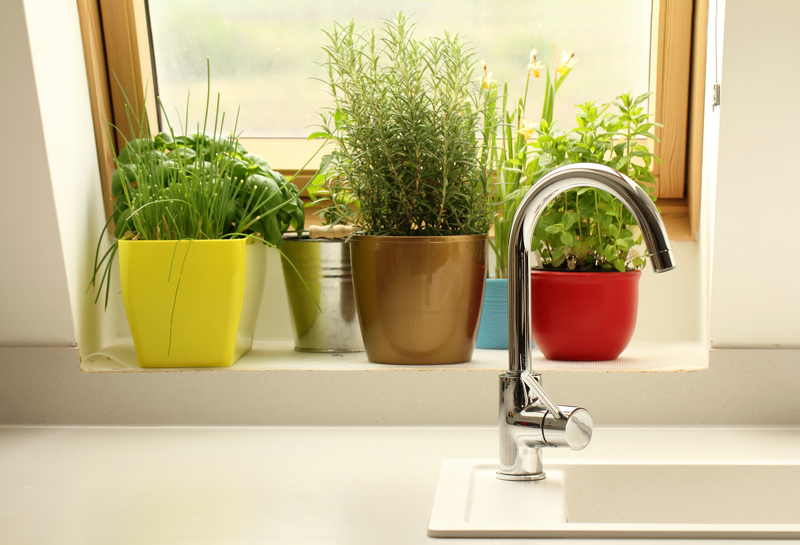Gardening Breakthroughs: 9 Tips for Absolute Beginners
Posted on 26/06/2025
Gardening Breakthroughs: 9 Essential Tips for Absolute Beginners
Embarking on your first gardening adventure can be both exciting and intimidating. With countless plant varieties, ever-changing weather patterns, and a dizzying array of advice, knowing where to start as a beginner can seem overwhelming. If you're ready to transform your brown thumb into a green one, you're in the right place! In this comprehensive and user-friendly gardening guide, you'll discover nine breakthrough tips specifically tailored for gardening beginners. Whether you're dreaming of vibrant flower beds, thriving vegetable patches, or lush indoor greenery, these expert secrets will set you on the path to gardening success.

Why Gardening Breakthroughs Matter for New Gardeners
Starting a garden is about more than just planting seeds. It's about nurturing life, creating beauty, and cultivating sustainability right at your doorstep. These innovative and time-tested gardening tips for beginners ensure you'll avoid common beginner mistakes and enjoy a healthier, more productive garden from the very start. So, grab your gloves, and let's dig in!
1. Know Your Garden's Unique Conditions
Every garden is unique, with its own microclimate, soil type, and sun exposure. Understanding these factors is critical to selecting the right plants and ensuring your garden's success. Here's how to assess your garden site:
- Sunlight: Track the sun's movement and note areas that receive full sun (6+ hours), partial shade, or full shade.
- Soil: Is your soil clayey, sandy, or loamy? Conduct a simple jar test or use a soil test kit from the garden center.
- Weather Patterns: Is your garden area protected from harsh winds or subject to pooling water after rain?
Tip: Matching plants to your yard's specific conditions is one of the most important gardening breakthroughs for new gardeners.
2. Start Small and Simple
One of the top gardening tips for newbies is to resist the urge to plant everything at once. Start with a manageable space--maybe a few containers, a raised bed, or a small plot. Choose easy-to-grow beginner plants such as:
- Cherry tomatoes
- Lettuce and salad greens
- Marigolds and sunflowers
- Mint or basil
Success with a small, focused garden will build your confidence and skills for more ambitious projects in the future.
3. Invest in Good Quality Soil
The "secret sauce" behind every lush garden is nutrient-rich, well-draining soil. For absolute beginners, soil health can be a true gardening breakthrough. Here's how to ensure your soil is up to the task:
- Add compost & organic matter to improve soil structure and fertility. Compost improves water retention for sandy soils and drainage for clay soils.
- Mulch your garden beds with straw, shredded leaves, or wood chips to retain moisture and suppress weeds.
- Test your soil's pH and nutrients, amending as needed.
Remember: Happy roots mean happy plants. Healthy soil is a breakthrough investment for any gardening novice.
4. Choose the Right Plants for Your Region
Selecting plants that match your climate and growing season is a game-changer. Consult your local extension office or gardening center to learn your USDA Hardiness Zone, and choose plants that naturally thrive in your local conditions.
- Native plants are well-adapted and require less water, fertilizer, and pest control.
- Check plant tags for sun, water, and spacing requirements.
Starting with the right plants prevents frustration and saves time and money--one of the best gardening secrets for beginners!
5. Master Watering Techniques
Overwatering and underwatering are common pitfalls for beginner gardeners. Plants have different moisture needs, but there are a few golden rules to keep in mind:
- Water deeply but less frequently. Encourage deep root growth by soaking the soil to at least 6 inches.
- Water early in the morning to reduce evaporation and disease risk (foliage will dry during the day).
- Avoid watering leaves directly to prevent fungal diseases.
Pro Tip: Stick your finger an inch into the soil--if it feels dry, it's time to water. Learning when to water is a key gardening trick every novice should master.
6. Feed Your Plants Wisely
All plants need nutrients to grow, but organic fertilizers are easiest and safest for beginner gardeners. Over-fertilizing can damage plants and pollute local waterways. Here's a beginner-friendly approach:
- Apply slow-release organic fertilizers at planting time.
- Top-dress beds with compost every season.
- Read fertilizer labels carefully-- "more" isn't always better!
For gardening beginners, balanced and organic feeding routines lead to healthy, resilient plants.
7. Keep an Eye Out for Pests and Problems
Pests and diseases are a fact of life in any garden, but beginners can use environmentally-friendly tactics to minimize damage:
- Inspect plants regularly for signs of trouble, like discolored leaves or chewed edges.
- Remove weeds which harbor pests and compete for nutrients.
- Encourage beneficial insects--ladybugs, lacewings, and bees--by planting flowers and avoiding pesticides.
- If necessary, start with organic pest controls like insecticidal soap or neem oil.
Catch problems early and respond swiftly--that's a gardening breakthrough every beginner needs!
8. Learn from Gardening Mistakes
Even experienced gardeners make mistakes--so don't let setbacks discourage you. Every garden is a classroom! Here's how to turn mistakes into valuable lessons:
- Keep a gardening journal to record what you plant, when you plant it, and how it grows.
- Photograph your progress to see subtle changes over time.
- Join local gardening groups (online or in person) to exchange advice and get encouragement.
Remember: Healthy experimentation is the heart of every successful gardening journey.
9. Celebrate the Journey--and Your Harvest
Gardening isn't just about the final harvest or perfect blooms. It's about enjoying each step along the way, learning new skills, and connecting with nature. Create a habit of celebrating each breakthrough, no matter how small:
- Snap photos of your first seedlings and blooms.
- Share your harvest with friends and neighbors.
- Experiment with garden-grown herbs and veggies in the kitchen.
- Invite family to join you outdoors and enjoy the rewards together.
Revel in your progress! Even the smallest garden can bring a sense of achievement and peace.

Frequently Asked Questions for Gardening Beginners
How much sunlight do beginner gardeners need for most plants?
Most vegetables and flowering plants require at least 6 hours of direct sunlight per day. Leafy greens and some herbs can tolerate partial shade.
What's the easiest way to start a beginner garden?
Container gardening or a small raised bed is ideal for gardening novices. These approaches make it easy to control soil, weeds, and watering.
When should beginners start planting?
Research your local last-frost date and begin planting cool-season crops (like lettuce or radishes) a few weeks beforehand. Warm-season crops (like tomatoes and peppers) should be planted after the danger of frost has passed.
How often should I water my new garden?
New gardens generally need watering every few days, depending on weather and soil type. Check soil moisture regularly and adapt as your plants grow.
How can I improve my soil as a beginner gardener?
Incorporate organic compost, mulch, and periodically test your soil. Avoid chemical fertilizers and tilling too often, which can damage soil structure.
Conclusion: Your Gardening Success Starts Now!
With these 9 gardening breakthroughs for total beginners, you'll have everything you need to grow thriving plants and enjoy the journey. Remember to start small, nurture your soil, pick the right plants, and stay curious.
Gardening is a learning process that rewards patience, observation, and hands-on experience. Use these expert gardening tips for newcomers to build confidence, avoid costly mistakes, and cultivate a lush oasis--no matter your space or skill level. As you grow, so will your garden--and your love for this timeless, nourishing hobby.
Ready to take the leap? Start today and discover just how rewarding gardening breakthroughs can be!
Latest Posts
Strengthen Your Garden's Defense Against Unforgiving Weather Patterns
Initial Steps to Rejuvenating an Abandoned Garden
Flavor at Your Fingertips: Herb Garden Mastery
The Path to Optimal Orchid Health
Inspire outdoor gatherings with stunning garden seating arrangements



